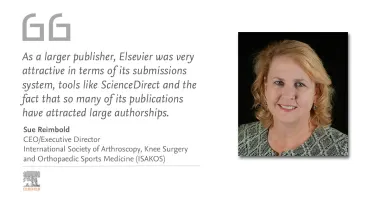Transforming together: The impact of collaborative open access agreements
At Elsevier, open access is a core element of our commitment to collaborative, inclusive and transparent research. Crucially, it’s also one way we partner with institutions to help them achieve their strategic goals.
We work closely with library leaders around the globe to understand the wide range of open access needs. To support these needs, we co-develop transformative agreements with librarians and their institutions or consortia. In this series of case studies, we hear from three of those collaborators – our sincere thanks to Carnegie Mellon University’s Dean of University Libraries Keith Webster, Tulane University’s Associate Dean of Libraries Dr Andy Corrigan, and former Board member of the Council of Australian University Librarians, Bob Gerrity, for so generously sharing their experiences with us.
Their success stories demonstrate the critical role the library can play in facilitating and enriching research at their institutions. With a transformative agreement, the library stewards cross-campus collaboration, supports internal stakeholders, develops workflows that aid researchers, and delivers on rapidly expands open access. The libraries are playing a more integral role in their institution’s research ecosystem and supporting sustainable growth of open access. Finally, their experiences highlight that whenever a potential roadblock looms, by working together we can resolve it.
We hope you enjoy reading these cases studies.














